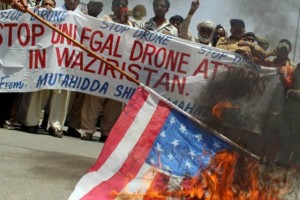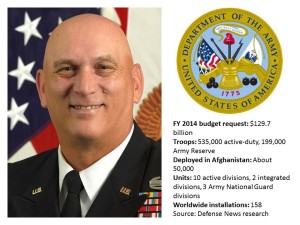
War game compares response of 2 versions of future Army
By Lance M. Bacon Staff writer
Army Times, Nov. 25, 2013 – 06:00AM
A reduced reliance on airfields and seaports in a recent war game resulted in increased speed and entry operations.
New Gear: What’s next
If necessity is the mother of invention, get ready for a lot of new stuff. In the near term, that will include:
■ Getting the network into standard units.
■ More interoperable and user-friendly mission command.
■ Mobile and survivable command posts.
■ 3-D or 4-D printing to reduce logistic repairs.
■ Hands-free, heads-up displays so “people playing ‘Call of Duty’ [no longer] have an ability to access data our soldiers don’t.”
And that is just the start, according to Maj. Gen. Bill Hicks, deputy director for the Army Capabilities Integration Center. He described some “very promising” advances in science and technology after the conference. One was mo-lecular changes to reduce the weight of vehicle armor by half without lessening protection.
Have you ever heard of graphene? It would take an elephant balanced on a pencil to break through a sheet with the thickness (or thinness) of plastic wrap. Imagine using that as body armor.
The Innovation Group moved one-third of its force using two conceptual troop carriers. One was an ultra-heavy vertical takeoff-and-landing aircraft that would (theoretically) cut BCT deployment from 29 days to four. The other was a conceptual joint high-speed, shallow-draft ship expected to reduce sealift time by half.





